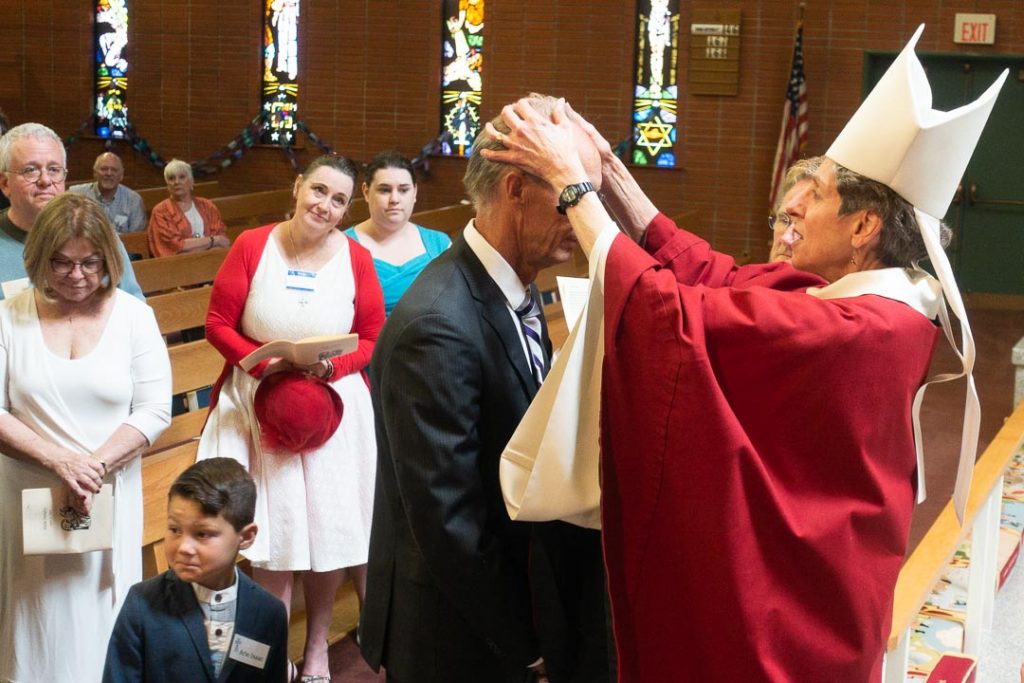Is diversity a good thing? Of course we all say yes—we’re not closed-minded–but our real life choices, priorities, and statistics say otherwise. We all find it so much easier to understand, socialize, and sympathize with people who are like us. It would be so much easier if those others would act like us! Why don’t they? What’s wrong with them?

Once upon a time, so the story goes, all humanity was the same. Everyone spoke the same language, lived in the same place, and even shared the same purpose. That one cause was to build a tower, so tall as to challenge God. Obviously not a great purpose, and construction on the tower was stopped by God himself who introduced confusing languages. Suddenly not everyone could communicate. Groups who did understand each other got together and wandered off in their little tribes. The tower was abandoned. There in Babel, God cursed humanity with diversity (see Genesis 11:1-9).
That’s one way of reading the story. From this perspective, Pentecost, with its one message spoken in many languages reverses this curse. One day, we will all be the same. In the meantime, let’s aim for conformity. But that’s not the only way to understand God’s will when it comes to human diversity.
Returning to the myth of Babel, we can see that humanity’s unified purpose is problematic, but not just the intention, but the all-consuming nature of the construction as well. God’s desire is for humanity to roam throughout the Creation, but the people have gathered in one small place. Jewish commentaries invite us to imagine what building the tower was like—an effort absorbing all human creativity and labor until nothing else got done. All resources are poured into building this monument. The people were starving because no one could work the land. The workers were compelled to work: brute force kept the project moving. Bricks became more valuable than people. According to legend, great lamentations went up when a valuable brick was dropped and shattered, but no one noticed when a human being collapsed under the weight of the work. It doesn’t take much historical imagination to guess where the rabbis who commented on this story got their ideas.
God steps in, then, not to curse, but to rescue. Without this tyrannical uniformity of purpose, the people would be free. As God confuses speech, he grants freedom, and the tribes go out of Babel to live. Joy! Now there will be community and belonging! The small groups separate, forgetting the unity that once belonged to humanity. Danger! Those outsiders threaten my community! The tribes will also be free to fear and attack other tribes. Diversity turns out to be both blessing and curse.
Here’s where the Pentecost miracle comes in. The message, salvation for all, is one of unity, but the means of delivery—language is diverse. The gift of Babel—diversity—is not revoked. This gift is what makes a community of justice possible. Uniformity of purpose and perspective puts us back in Babel with one powerful project, demanding conformity, ignoring personal experience. Resistance is futile—the Babel project tramples over any objections. In a diverse community, with a variety of perspectives, personal contributions are possible. No one belongs simply by giving up, but through individual participation and creativity. This is the community St. Paul describes as inspired by the Spirit: Everyone contributes through their particular gifts.
In Christ, God’s love bridges the gaps between us–we have nothing in common but Christ, and in that, we have everything.
We don’t have to be in the church to appreciate diversity. All we need to do is attempt to be grateful for a different perspective. Gratitude changes our perspective. We don’t need to tolerate differences, we appreciate them. For that we need inspiration—the ability to see beyond our own perspective. This is the gift of the Holy Spirit in our lives, and it is what we pray for in baptism:
“give {us} an inquiring and discerning heart, the courage to will and to persevere, a spirit to know and to love you, and the gift of joy and wonder in all your works.”
If as a church, we mean what we say, then we will not be threatened by difference. No, we can be curious, even appreciative of other perspectives. This isn’t easy or natural–the curse of Babel is real–but with the Spirit, it is possible to be a community of diversity and appreciation.. How? Our Living Room Conversations were a good beginning. Remembering the vision of unity within diversity gives us the inspiration to push forward. We are to be a community like none other, a shining light to be seen by all. In this time of anger and separation, our witness to the gift of diversity is needed more than ever. Let’s do what we can to live what we know, that the love of God in Christ bridges the gaps between us.

2 Responses
I love this post as it is so relevant to these days. I want to share it on FB but it doesn’t seem to want to go there. Am I doing something wrong?
Where there’s a will… I figured it out. No need to respond. ❤️